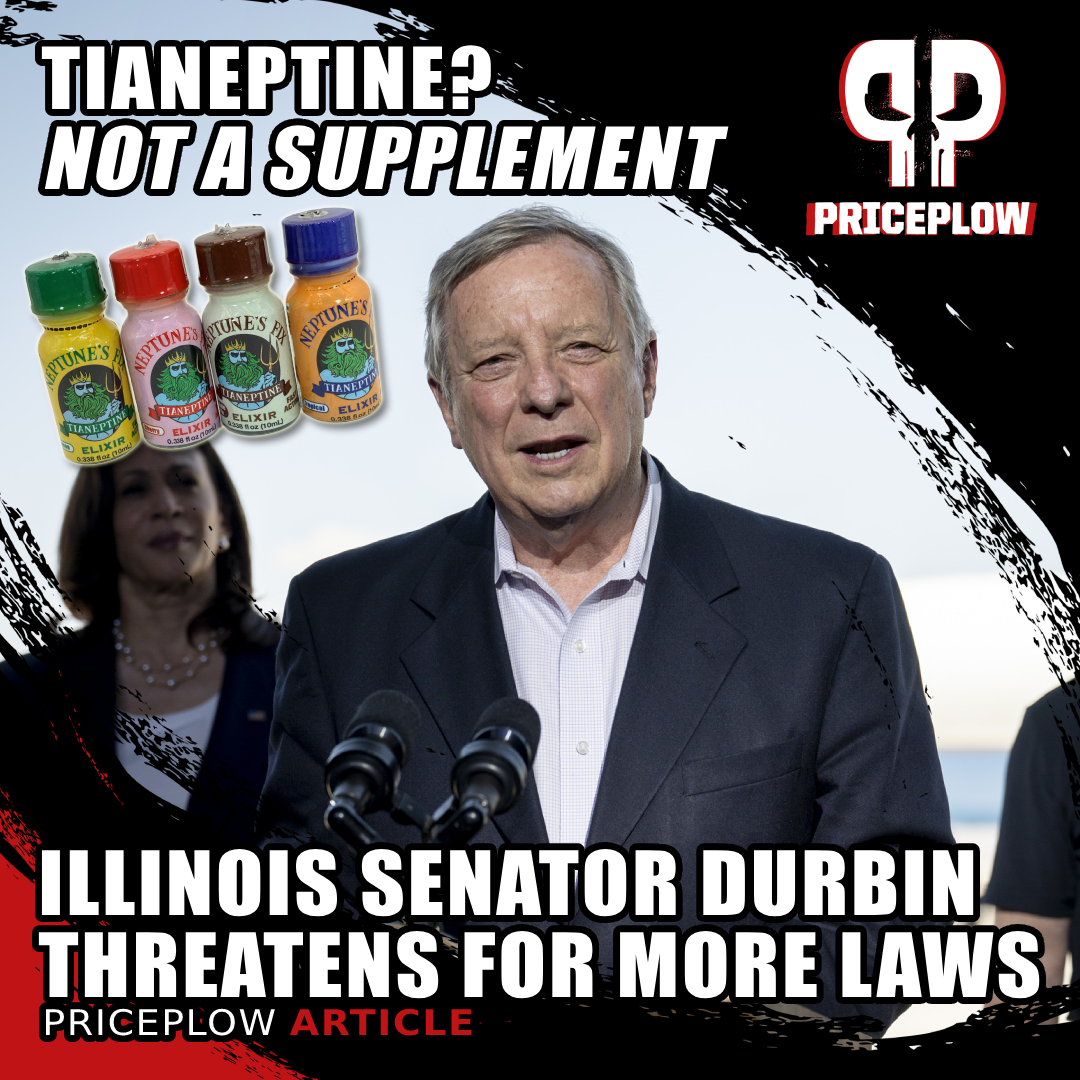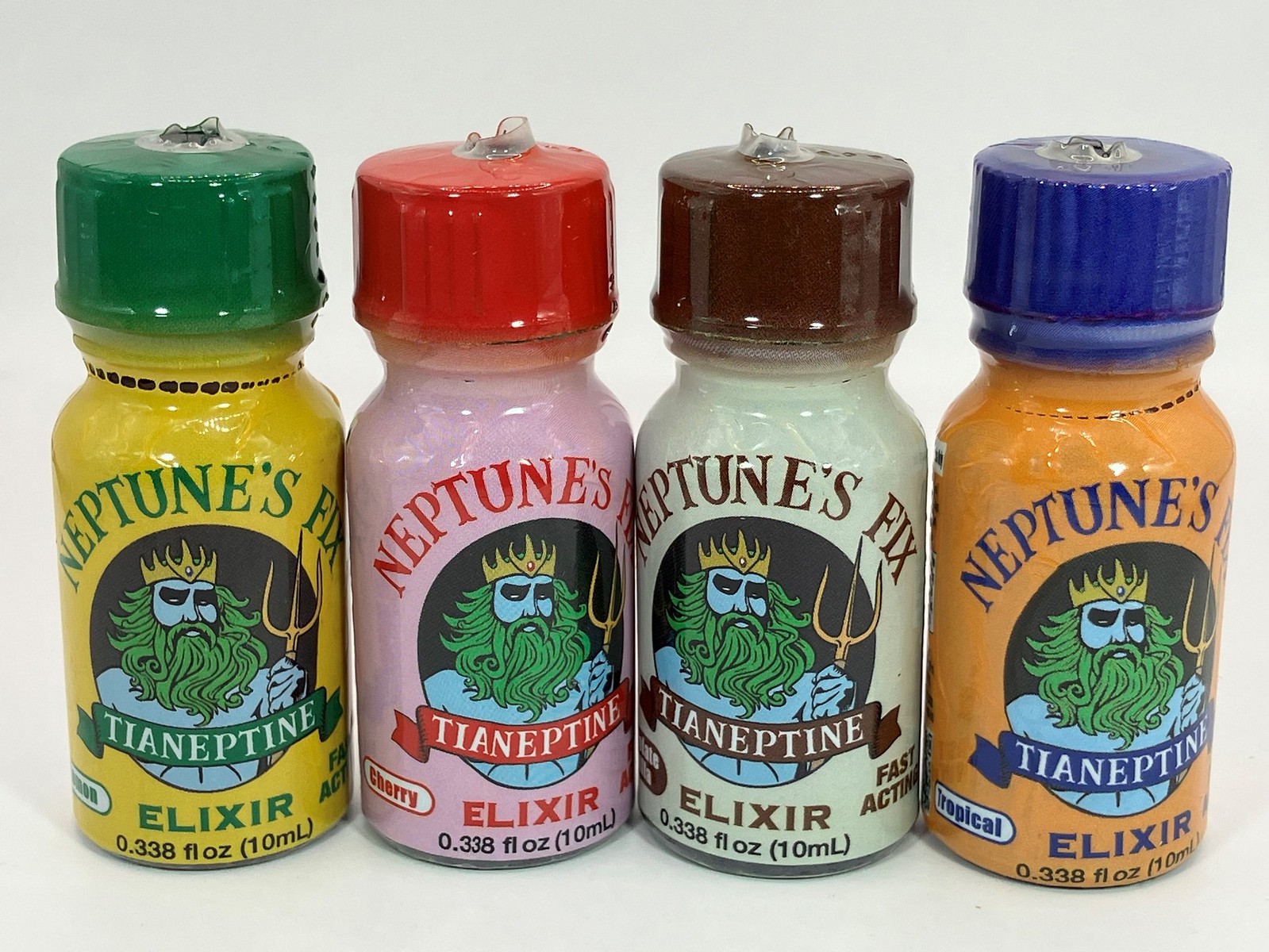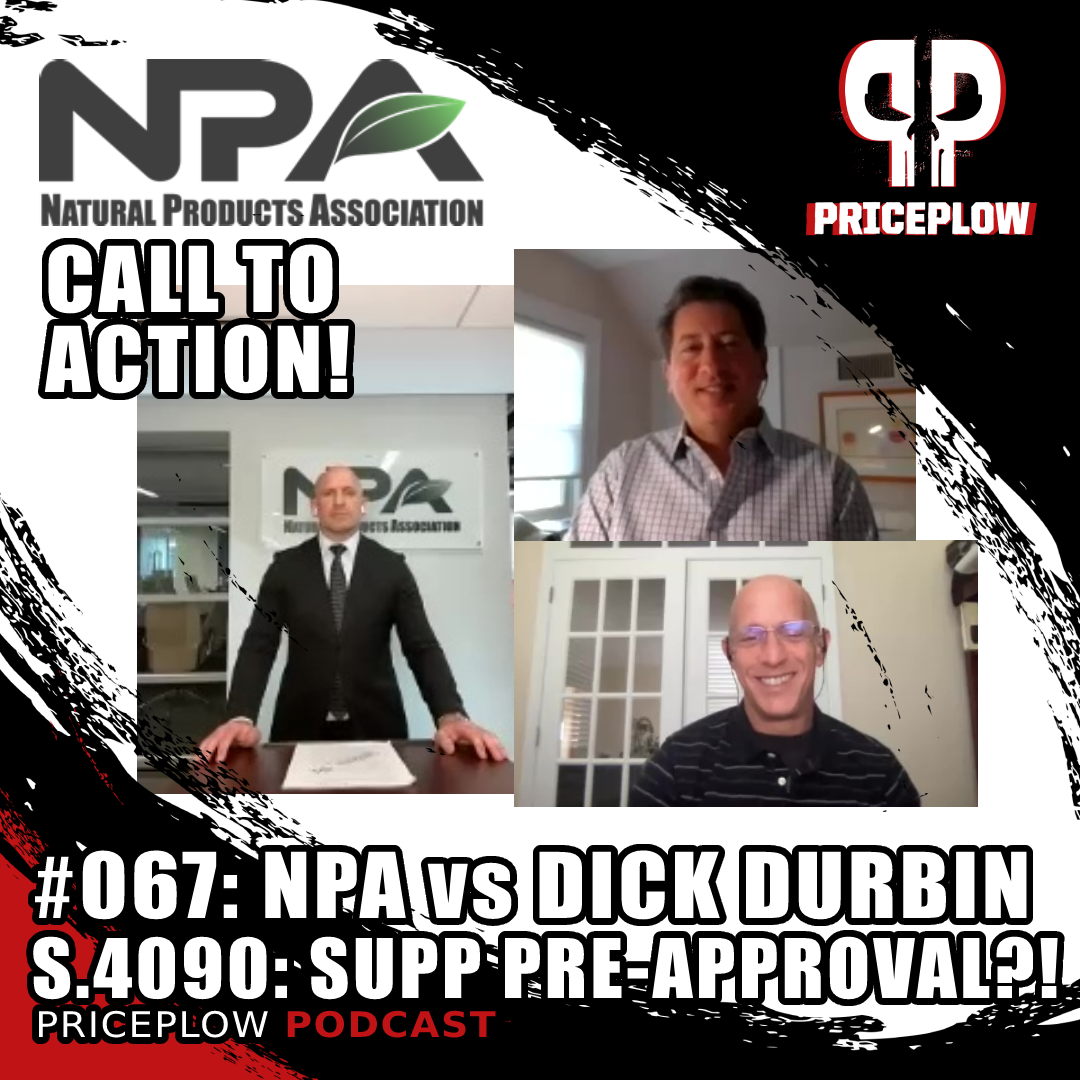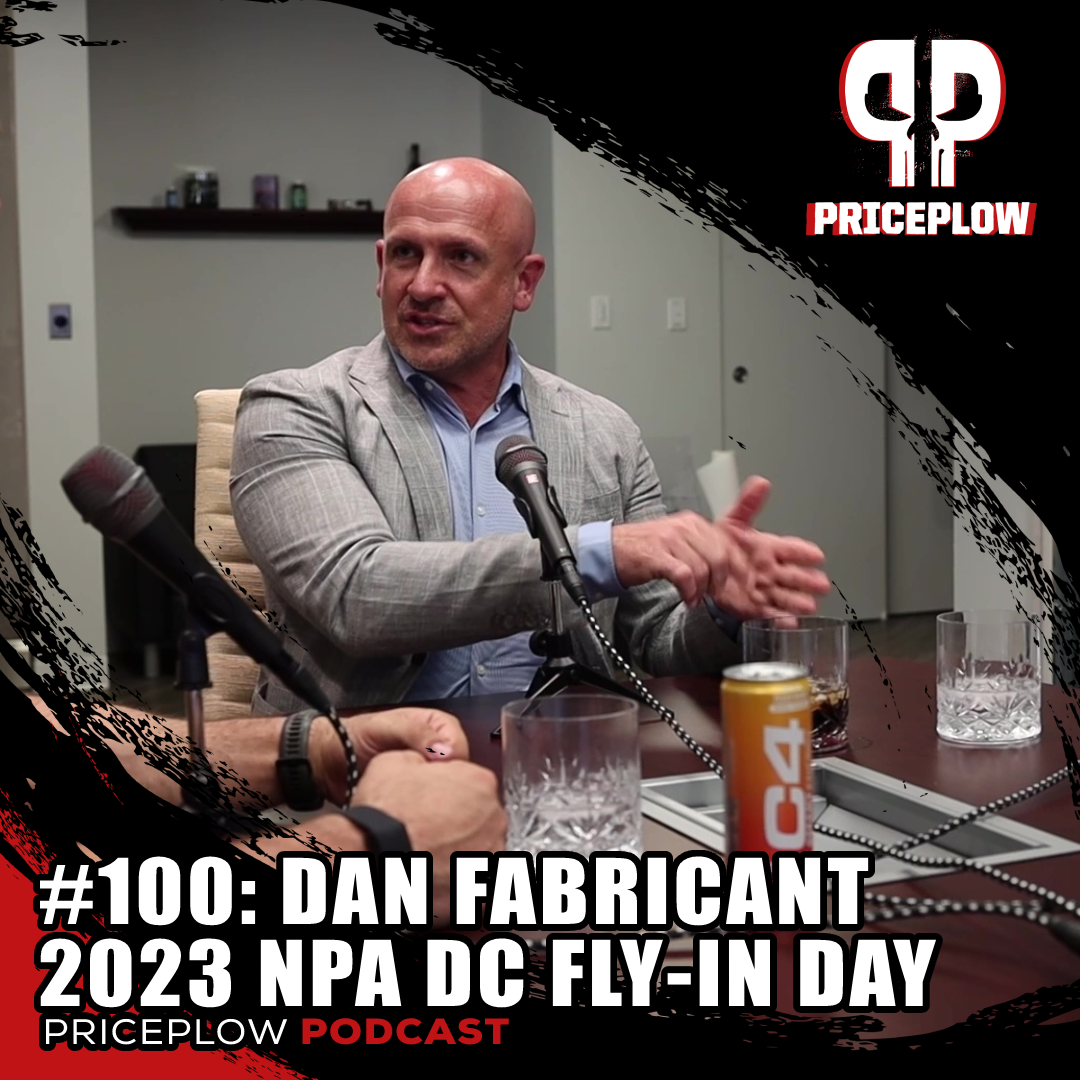On March 18, 2024, United States Senator Dick Durbin of Illinois sent a letter to four dietary supplement industry trade associations demanding action against the inclusion of dangerous and illegal ingredients in products marketed as supplements.[1-5]
The letter focuses specifically on tianeptine, a compound sold as an antidepressant in several European countries that has numerous safety concerns due to its strong affinity for mu-opioid receptors,[6] which can lead to addiction and abuse.[7]

Illinois Senator Dick Durbin recently threatened industry with a law forcing Mandatory Product Listings with the FDA for all dietary supplements, using recent tianeptine arrests as a pretext. There's only one issue: tianeptine was never a dietary supplement -- and the existing laws worked as designed!
The FDA recently updated a consumer bulletin about the drug,[8] highlighting two recent arrests made by the Department of Justice (DOJ) with respect to its smuggling and illegal distribution.[9,10] They warn consumers not to use the substance due to severe side effects,[8] especially from one company that issued a nationwide recall.[11,12]
Durbin to Re-Introduce Mandatory Product Listing Bill?
After discussing tianeptine, Durbin's letter continues, stating that he'll be re-introducing the Dietary Supplement Listing Act (S.4090), a bill he proposed in 2022 to require mandatory product listing (MPL) of all dietary supplements.[13] Such an act would force all brands to register every dietary supplement with the FDA, including new flavors, variations, and formulation changes.
S.4090 was read twice, but stalled out once referred to the Committee on Health, Education, Labor, and Pensions.[13] We podcasted about it with Dan Fabricant in Episode #067 of the PricePlow Podcast.
We commend Senator Durbin for taking a stance against tianeptine -- we've actually hosted a video on YouTube since 2018 warning the public about it, with over 11,000 views in 2024.
There's only one issue with using this drug as a pretext to force mandatory product listings for all dietary supplements:
Tianeptine is already illegal!
The supplement industry is regulated by a law known as DSHEA 1994, the Dietary Supplement Health and Education Act of 1994.[14] Many individuals and media outlets erroneously claim that "supplements are unregulated", but such statements couldn't be further from the truth -- there are actually four major pillars of supplement regulations:
The four pillars of dietary supplement regulation
-
Pre-Market Safety
First, there are regulations with respect to safety and the introduction of new dietary ingredients.
Team PricePlow flew into Washington DC for the Natural Products Association's 2023 Fly-In Day, recording a great tell-all podcast with NPA's CEO, Dan Fabricant, who tells us in PricePlow Podcast Episode #100 why we should be involved in our industry's politics.
The NDI (New Dietary Ingredient) Notification process, established by DSHEA 1994, enables new ingredients to be introduced to the market, presenting the FDA with an opportunity to acknowledge or reject them within 75 days.[14-17]
Additionally, the law allows for the FDA to remove ingredients based upon adulteration concerns -- generally, this would require documented safety issues.[15,18]
-
Labeling Laws
DSHEA 1994 also gave the FDA authority to regulate labels, and they have created several codes that are quite clear in terms of supplement facts panels, ingredient listings, and claims that can be made about a product.[19]
The Federal Trade Commission additionally has several regulations of their own, dictating how products can be labeled, marketed, sold, and discussed.
-
Quality and Manufacturing
21 CFR 111 lays out the GMPs (Good Manufacturing Practices).[19] While dietary supplements are technically part of the "Food" category in the "Food and Drug Administration", these supplement manufacturing laws and requirements are actually designed after 21 CFR 210 and 211, the drug GMPs!
-
Adverse Event Reporting
The AER system for dietary supplements uses MedWatch, which is actually a "copy/paste" of the drug reporting system.[20]
The point of this breakdown is this: Thanks to the first pillar -- pre-market safety laws -- tianeptine is not a dietary ingredient!
Specifically, with respect to tianeptine:

Tianeptine is not, and never was, a dietary supplement. These products were recalled due to high rates of adverse events.[11,12] Image courtesy FDA
- Tianeptine was not sold as a dietary supplement before 1994, so it's not "grandfathered" in as an "Old Dietary Ingredient" (ODI).
- Tianpeine has no New Dietary Ingredient Notification (NDIN). If someone ever files one, it would most not be acknowledged by the FDA.
- Tianeptine is not generally recognized as safe (GRAS), so it can't be added to foods, either.
Long story short -- it's already illegal to label tianeptine as a supplement!
These sentiments are discussed in a March 26, 2024 letter to Senator Durbin, written by Dan Fabricant, CEO of the Natural Products Association.[21]
"As for tianeptine, it has never been a dietary supplement."[21]
-- Daniel Fabricant, Natural Products Association CEO
The law worked as intended
Normally, after reading a letter like Senator Durbin's, we'd remind everyone that the laws and regulations exist, they just need to be enforced.

Previously on the PricePlow Podcast, the NPA successfully defeated a bill (S.4090) introduced by Senator Dick Durbin that would have required pre-approval from the FDA for all dietary supplements. Listen to it in Episode #067.
But in this case, we don't need to ask for Agency action -- the FDA and the DOJ did their jobs in removing tianeptine from the market and arresting the offenders![9,10]
The system, quite literally, worked as intended.
Nothing was broken, nothing needed fixing, we simply needed good old fashioned police work -- and the FDA in partnership with the DOJ made it happen. What does the Senator propose they do, double arrest criminals now?!
When we work in Washington DC to support the dietary supplement industry, we joke that we're the only industry who asks the federal government to actually enforce their laws. And when the feds do just that -- as they did with tianeptine this past February -- we applaud and congratulate them.
Mandatory Product Listing is Unnecessary for Dietary Supplements
Senator Durbin's letter hilariously contradicts its own intent: The law was violated and the culprits were caught and put behind bars. Why is a successful case being used as a pretext to create more laws -- the current ones already worked!
Further, what makes Mr. Durbin believe that people who are willing to break laws would ever register their products with the FDA anyway? And how would that stop gas stations from buying and reselling such products? These are bewilderingly nonsensical arguments that simply aren't rooted in reality.
Enforcement worked, and we won't argue against even more
Instead, forcing a Mandatory Product Listing for companies who are already complicit with the law simply stifles the industry and increases federal bureaucracy, when resources are better spent on enforcement like in the case above.

The NPA (Natural Products Association) has announced their annual Washington DC Fly-In Day for 2024: May 22! Join us and support the dietary supplement industry.
If anything, more enforcement at the importation level should be welcomed for tianeptine and similar ingredients. After all, we all know where they're coming from and how they're getting into the country. If we know, then certainly the federal government does too. Maybe someone will eventually do something about that.
Durbin's plan to enforce registration and listings for all products does not solve a single issue this nation faces. It puts a massive burden on companies that are already in compliance with the law, and steals resources from agencies that could actually make an impact on the safety of all citizens.
For these reasons, the dietary supplement industry must fight any added legislative overhead -- but we also must applaud the FDA and DOJ for putting tianeptine-smuggling criminals behind bars.
This article will be updated if/when Senator Durbin proposes his bill. You can sign up for our Natural Products Association news alerts below to get updated when new regulatory concerns are posted or this article is updated with more information and content.



Comments and Discussion (Powered by the PricePlow Forum)